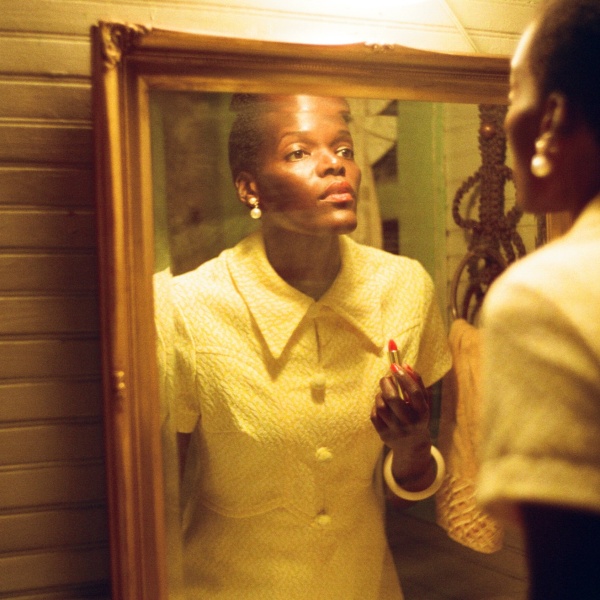Everyone involved with the film adaptation of “Who’s Afraid of Virginia Woolf?” had a lot riding on its success. For star Elizabeth Taylor, this was perhaps her first chance to prove that she could act (certainly the middle-aged Martha was the most demanding role she had ever had). For first-time producer Ernest Lehman, the movie could make or break him as he moved away from writing classics like “North by Northwest” and “Sweet Smell of Success.” And for director Mike Nichols, “Who’s Afraid of Virginia Woolf?,” his feature film directorial debut, would either burnish his growing reputation as a boy genius after several smash Broadway hits or prove that he was out of his depth.
The impetus to play things safe must have been strong, and yet none of the film’s major players shied away from choosing the riskier paths. Filming in black-and-white in 1966 was not the indicator of prestige that it is now; the move was seen as archaic and arbitrary by Jack Warner, the head of Warner Bros. Nichols and Lehman battled him constantly during pre-production and even weeks into filming. And certainly Taylor and Nichols were surprising choices, but Lehman stuck by them (much to the chagrin of Bette Davis, who desperately wanted to play Martha).
Somehow everyone persevered, though tensions were high and tempers fraught. Nichols routinely vented his frustrations to Lehman — usually pinning the blame on his producer. He got his way in almost every instance, but it was a fight over composer Alex North (“A Streetcar Named Desire,” “Spartacus”) that led to Nichols being kicked off his first film. Below, in an exclusive excerpt from the new making-of book “Cocktails With George and Martha: Movies, Marriage, and the Making of ‘Who’s Afraid of Virginia Woolf?,’” writer Philip Gelfter details the dramatic rush to finish the film — and the behind-the-scenes power plays.

On January 5, 1966, Jack Warner sent a memo to Lehman and Nichols detailing a rush-rush schedule to ship the final cut of the picture out of the state by March 1—to beat the tax deadline. The memo also said that Alex North, the composer—who had not yet begun his score for the film—had agreed to this schedule, but when Lehman called North, it was the first he had heard of it. “It’s unfair to expect me to write a score for such an important movie in so short a time,” North said, balking. He had not seen any footage, nor had he even met with Nichols and Lehman to discuss what they expected for the music.
Nichols went into a rage about the deadline, pitching a fit in Warner’s office, and convincing him to abandon the March 1 shipping date. Still on a rampage, he stormed into Lehman’s office to complain. Lehman asked him how he convinced Warner to change the deadline. “I told him that if he tried to force me to do the film this way or took it away from me,” Nichols replied, “I would simply go back to New York and give out interviews in the newspapers telling them exactly what had happened.” Nichols then turned his rage on Lehman, resurrecting his old gripe about always having to fight the battles with Warner Brothers alone. Mike went even further and unleashed a litany of Ernie’s short-comings, which Lehman sarcastically enumerated in his journal as if making a confession: “In which Mike claimed that first, I think only about my own feelings, not about the picture; Two, I am interested only in getting publicity for myself and not concerned about the picture; Three, all I ever do is complain about not being included in everything, but actually, I ought to be making sure that I am included even though there are those trying to exclude me [like Nichols]; Four, the better Mike works and the more effective his work on the picture, the more guilty I make him feel about me; and Five, he and I usually achieve the same end result in our dealings with people—he yells and screams without giving a damn what other people think and I do it by making other people feel guilty. The latter technique, according to Mike, is sneaky and dishonest.”
It is uncanny how psychological projection operates between individuals who work so closely together. Every one of Nichols’s accusations about Lehman could have been said about himself. At the end of the recriminations, Mike walked over to Ernie’s desk and shook his hand, as if clearing the air following his verbal slap down. He left as if they were friends again. Lehman maintained his equanimity, but the indignity was filed away.
The following day, North came in to watch three reels of the film with Lehman, Nichols, and O’Steen. After a healthy conversation, they all agreed to avoid a full orchestra treatment; instead, the music would be intimate but modern, consisting of very few instruments. Mike proposed that the music should be as minimal as a single instrument. For the next month, Nichols and O’Steen toiled daily in the cutting room, periodically showing North specific scenes that called for musical treatment and discussing the thematic nuances of the score. Their meetings were fraught with conflict. North was a Hollywood stalwart. He had composed the music for a wide range of cinematic genres, from historical epics like “Spartacus” and “Cleopatra” to the film versions of serious plays such as “A Streetcar Named Desire” and “Death of a Salesman.” By 1966, he had received nine Academy Award nominations for Best Musical Score and won one Grammy. But despite North’s accomplishments, Mike insisted on hearing Alex play the various musical themes he had in mind for “Virginia Woolf” on the piano before he composed the score, which left Alex indignant. North was adamant about maintaining his artistic freedom, and hostility between them grew worse.
On February 8, Jack Warner notified Lehman and Nichols that the editing had to be completed by February 15 for North to meet his scoring and recording date the first week in March. Believing that he was being rushed to accommodate the composer’s schedule, Nichols unilaterally fired North without consulting Lehman. Then—behind Lehman’s back—he tried to convince McEwen to hire André Previn. When Previn turned out to be unavailable, Nichols suggested Leonard Bernstein, one of his closest friends.
This is the way O’Steen remembered the following sequence of events: “Ernie had signed Alex North as the composer. He was considered tops in Hollywood, but Mike didn’t want him; he wanted Andre Previn. I said, ‘Mike, they already signed him [North] and that’s money, don’t fight with Warner, don’t push him into a corner.’ But Mike didn’t give a shit; he wanted Andre Previn. That’s what finally did it. That was just before Warner threw him off the lot.”
Excerpted from “Cocktails with George and Martha: Movies, Marriage, and the Making of Who’s Afraid of Virginia Woolf?.” Used with the permission of the publisher, Bloomsbury. Copyright © 2024 by Philip Gefter





